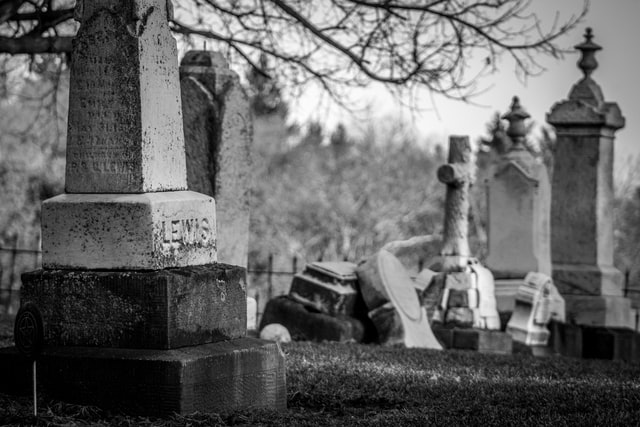Tonya had no idea. She was asleep when Corey and his buddy Larry got the car stuck out in the woods on an otherwise quiet Sunday night, she was asleep when Corey came stumbling into the house around midnight, and she was still asleep when he fumbled with his lunch box out the front door, still buzzed, at six twenty in the morning. The police officer, on the other hand, did know what happened. It was fairly obvious that the two young men were out driving around drunk doing donuts and then decided to go off-road in a sedan that was not supposed to go off the road. Tonya wouldn’t know anything until Corey got a ride home from work, and then she would likely wonder why. Because she was going to need the car they shared to get herself to work that night. In the end, he could hear her saying. It was her current phrase of the month, something she seemed to say before everything. Before that, it was in a sense. In the end, Corey thought as his trusty buddy Larry dropped him off at work, she’s not gonna be thrilled about this. He tossed a handful of gum in his mouth and thanked Larry for the ride.
Corey punched in and went out to the warehouse and started loading his truck. It was cold in the unheated warehouse. Loading his truck with a quickness only achieved when he was trying to stay warm, Corey decided there were two reasons why the cop had let them off. One, and probably most important, his driving record was impeccable, and the cop would have seen that he held a CDL. Second, the cop felt sorry for him. Corey vaguely remembered his voice cracking as he spoke of his career in driving and lying about his wife having their first child in her belly.
Need to stop drinking, he thought, pushing a pallet jack into his truck. The classic overreaction. He’d made this statement to himself roughly a hundred times since he was seventeen, and every time it didn’t go well. Because seldom are we sincere with ourselves. He was too young to quit doing dumb shit. Even with the gray hair he’d been sprouting since age twenty six, the gray hairs which he had accepted with grace, the gray hairs which Tonya had requested he color.
“Corey!” His dispatcher screamed from the warehouse floor.
Fuck, Corey thought. Here we go. He stopped about ten feet from his boss, and stood. Keeping his distance, so his dispatcher wouldn’t smell the booze oozing from his sweaty pores. “What’s up?”
“You remember delivering a safe on a Friday?”
Corey looked up, squinting deep into his memory. Friday was a long time ago, a lot of alcohol ago. “Yeah,” he said. “On that dead end street.” By now he knew he’d fucked up. He just wasn’t sure how. But he was curious.
“Do you know who signed for it?”
“Yeah, it was the neighbor. ‘Cause the people weren’t home, and I called the number you gave me and left a message. I was sitting there waiting probably twenty minutes. So this kid comes over and says he can sign for it, he knows the people.”
“What did you do with the safe?”
“He helped me drop it down off the truck. It was like, two hundred pounds. We pushed up next to the garage. He said it’d be fine there.”
“Well, the customer called asking where the safe was, and Jen told them it delivered on Friday. They said nope, they were gone all day Friday, and they don’t see a safe anywhere.”
“Brian, you know we do this type of shit all the time.”
“Yes — when the customer says it’s okay.”
“I just assumed, because obviously he knew the people.”
“You assumed. And you know what happens when you assume? You make an ASS out of YOU and ME.” Corey had heard Brian give this line to other drivers many times, but it was the first time he’d heard it directed at himself. He’d rather it was directed at someone else. He felt like an idiot, remembering the stupid smirk on the kid’s face as they shook hands before parting ways. Brian said: “Did he have a vehicle?”
“There was a pick up truck parked on the street.”
“What kind of pick up?”
“Red Ford F150.” Which was not true. He just wanted to sound certain of something.
“You better hope they know this creep and he just hid it somewheres,” Brian said, heading back towards the office. “Because that’s on you if he stole it.”
Corey finished loading his truck. He pulled the door shut and went to the break room. He took his paperwork off the counter. One of the other drivers came in from the warehouse. “Morning,” Corey said.
“Yup, hey, are you delivering that nice pallet of hardwood flooring today?”
“Yeah. Some place in Stonington.”
“Why don’t you swing that by my house on your way outta town. I’m redoing my bedroom floor.”
“Fuck off.”
The other driver smiled, and said: “My old lady will sign for it.”
At least they hadn’t taken away his regular route. The Downeast route. Or the Gravy run, as the other drivers called it. But Corey had earned a good regular route. Because aside from occasionally giving other people’s freight to punk kids in pickup trucks, normally Corey did exactly what his dispatcher liked: get the freight delivered, don’t call unless you need to, and don’t complain. Punch out, go home.
But today there was much distance between each stop. Windshield time, they called it. Which translated to thinking time. Not necessarily a good thing when one’s life is in the toilet. Taking stock, pondering why he’d made some of the decisions he’d made in life, such as giving up on learning a trade (as his parents wished) and instead going to truck driving school (as a friend had suggested). He reached in his lunch box and ate cold Pop-Tarts for breakfast, thinking about how much better a McDonalds breakfast sandwich and hash brown would be. He couldn’t afford luxuries like that, not while trying to scrimp and save so they didn’t have to share a car anymore. But things could be worse: he could easily be eating a crappy breakfast in the county jail instead.
His phone vibrated on the dashboard. He tilted the phone and read the text: So where’s the car
Whaaaaat?
No punctuation, which cemented her intention to sound pissed off. But how would she know? Fuck that. Don’t respond yet.
He pushed his phone back across the dash. Glad that he hadn’t bragged to her in the morning about being let off by the police. That would have been embarrassing. No, fucking silly, considering his present life status:
Ain’t it crazy, babe?
What were you doing?
Oh, you know, we were ripping pills off my dashboard and drinking beers and doing donuts out on Route 46. Just a typical Sunday evening.
And how old are you?
Yes. I am thirty.
And he knew the foolishness of his juvenile behavior and somewhere in the back of his mind he was well aware that at some point something was going to happen that was going to force a change in him, and that something was probably going to be bad and until then, he was not letting go of his infantile lifestyle. But he almost had, about six months ago when she got pregnant. Suddenly everything was going to change. No more getting wasted every weekend with his buddies and doing stupid things out in the woods. No more pounding vodka and cranberry juice cocktails before dinner and then passing out afterwards. Soon he would have a little human to worry about after dinner. And early in the morning. Then she had a miscarriage.
He was on a winding narrow road, trying to find his first delivery. Old homes sparsely spread and half the mailbox numbers not readable, either because there were numbers missing or the numbers were too small. He slowed for a stretch, then sped back up and blew right past the number he was looking for and didn’t realize it until he was a quarter mile down the road. He kicked the flashers on and backed up, not concerned about another car coming — he hadn’t seen another vehicle since town. He kept backing up directly into the long driveway, trying to avoid the low hanging branches that dangled above. He put on his hat and gloves and jumped out. The woman was supposed to be home — she needed to be home, because he needed a signature — but there were no cars in the driveway and no garage. Hoping she was home and she was hot and she was desperate for a handsome young delivery man. He knocked on the door.
The door opened immediately, as though she’d been waiting for him. “Hello,” she said. Much older than he’d expected, hoped. “You must have my treadmill.”
“I sure do,” he said. Fuck, he thought. She seemed to have a hard time standing — clearly she wasn’t going to be much help dragging that heavy box off his truck.
He went back to the truck and climbed in the back and with his pallet jack moved the treadmill box onto the lift gate and lowered himself and the treadmill down to the ground. He heaved the box up on it’s vertical end and pushed a two-wheeler under it and rolled it to the front steps. Technically, his job was finished. He was only supposed to get the freight to the door, then it was up to the customer to get it from there. But he couldn’t leave it outside. No way she was getting it into the house on her own and wasn’t it supposed to rain later? So he wrestled the treadmill up the few steps and into the house. She was watching him the entire time, not saying a word, probably making sure he didn’t ding her door trim with it. He pushed it inside enough so that the front door would close, then he rose and wiped sweat from his temple. All done, he thought.
“Thank you so much,” she said. “I’ll be right back.”
She was going to get some tip money, he thought. Nothing special, five bucks maybe. But that was lunch money, baby. He’d take it.
She was taking a while. He started thinking about all the other deliveries he had to make that day, before going home and figuring out a way to drag his car out of the woods. Then she returned, but she didn’t have any cash. She was holding a toolset.
It would’ve taken me all day to assemble that fucking thing, Corey thought, defending himself from himself. He was back on the road. A half hour or so to the next delivery. Surely, she had a son or something who could come over and help put the treadmill together. She’d seemed disappointed, but she had given him a bag of frozen chocolate chip cookies on his way out. A nice old lady. Made him think of what his own mother might be like in ten years. Sweet and sincere and somewhat naive. Then thinking that that time was really not that far away. The next ten years were going to cruise by and no amount of self-induced abuse could slow it down. Hoping, praying that she was doing whatever she’d researched about avoiding the same fate as her mother; he didn’t want to watch her mind deteriorate like that. Then thinking, maybe that was why she wanted them to have kids so badly — she wanted to have a grandchild before her memory began to fade, anticipating the same fate for herself as that her own mother. He hadn’t told her about the miscarriage. They hadn’t told anyone, because nobody knew she was pregnant.
He pictured his car out there in the woods again. Luckily, it hadn’t snowed since that first storm back around Halloween but it was still going to be a pain in the ass. Hopefully that dumbass still has his chains, he thought, glancing at his phone to see if she’d texted anything else. She had not. She must have gotten up when I left and saw Travis’ truck, only thing that makes sense. Don’t matter she’s gonna find out eventually and then he stopped thinking about that when he saw someone up ahead walking on the side of the road.
It was unusual seeing anyone walking on the side of a road out there. He let his foot off the gas. The person was dressed in dark clothes, hood up. Some weirdo goth kid, he assumed. His phone was vibrating again. Leave me the fuck alone, he hissed. He leaned forward, enough to glance at it and see who it was, as though there was any question. He didn’t text with anyone else. He couldn’t read the message, all he could see was that it was Tonya. When he looked up, the goth walker was only about fifty feet ahead and suddenly leapt sideways into the road.
One thing he’d learned, driving behind the wheel of a vehicle which could easily kill other people, was never to overreact. In certain situations, it was better not to react at all. Instead of killing one person, you might kill several, including yourself. In this case, he didn’t do nothing. He closed his eyes and pulled the wheel slightly to the left. But he knew he was going to hit this idiot and now he was only hoping not to hear anything. Because he’d once heard a story from a female trucker who was driving down south somewhere and coming up on a bridge overhead, and a man hopped off the bridge and landed directly on the hood of her truck. And while the whole thing was disgusting and disturbing, and she kept asking herself why that person decided to pull her (not that he’d chosen her on purpose, but he had chosen someone and that someone happened to be her) into his terrible death scene, the thing that stuck with her the most even years later were the sounds on impact, the simultaneous grunts and thuds. “And what if I’d only stopped for a shower back at the Pilot an hour ago?” She’d said. “What if I’d been twenty minutes behind where I was?” Hours later, Corey would wonder how different things might be if he’d stuck around the house for an hour to assemble that fucking treadmill.
It was a girl’s face. He’d ascertained that much, as she turned her head to the left, in the sliver of a second before he pulled the wheel and veered into the other lane, certain that he’d at least clipped the suicidal bitch. He hit the brakes and skidded to a stop with his left front tire edging the ditch on the wrong side of the road. He checked both mirrors — no sign of her behind him. He hadn’t felt or heard a hit, and while he was selfishly glad that nothing like that would remain engraved in his head, it didn’t mean anything. He’d probably hit her. He cut the wheel hard to the right and pulled forward, back onto the right side of the road. He grabbed his phone to call the police. Something told him no. Perhaps subconsciously he wasn’t yet ready to engage with police again. He dropped his phone in the cupholder. Then he punched on the flashers and kicked his door open.
Halfway to the back of the truck, he crouched down and scanned underneath it. He continued on, thinking why, why would you jump in front of a truck? Why not down a bottle of pills instead? It’s a much cleaner way to go. He continued to the back of his truck.
He stopped when he saw her in the ditch. She rose slowly like a little monster, her arms and legs caked with mud and dead leaves. Her hood was down and her dirty blonde hair all over the place. He moved closer. He said: “Are you okay?”
At first she said nothing. She just stood there, holding her muddy hands out as if for him to see. But clearly she was okay, at least physically. Mentally, another story. “Yeah,” she said. “Sorry about that.” Like she’d just grabbed his hash browns or something.
“Well, what the hell was that?” Not that he expected a decent, reasoned response. He was angry, now that he knew she was okay.
“I don’t know,” she said, wiping her hands on her pants. “I’m sorry. Please don’t call the cops.”
“Are you fucking serious?” Studying her face, which was pretty underneath the gaunt, sad expression.
“Would you mind giving me a ride?”
“Are you fucking high?”
“No,” she said, climbing out of the ditch.
“No,” he said. “Definitely not. First of all, I’m not supposed to have anyone in the truck with me.” But he didn’t get into the second or third reasons, he just stopped talking, and kept looking at her. What he should do, he knew, was call the police. Have them make a report. Then leave them to deal with her. Then he felt bad. Obviously she’s harmless, he assumed.
“Fine,” she said. She turned and started walking. He wanted to grab her and spin her around, and explain how she’d almost just killed both of them. Make her understand. He felt like he was dealing with Tonya, when she was in one of her irrational moods. Making him feel guilty about something he knew he shouldn’t…and then just walking away like that was the end of it. Nope, he thought. Because who the fuck knows? Yeah, he could get back in the truck and bounce, and then the next day be reading about her jumping out in front of somebody else. Nope. “Where are you going?” He yelled.
Turning her head enough so he’d hear her, she said: “Does it matter?”
Talking, even walking, just like Tonya.
“Where you gonna go?” He glanced around, to make sure nobody was watching this ridiculous scene.
She stopped, turned to him. He thought she was crying. She stumbled a few steps toward him, then a step back. Putting on a hell of a show. Mumbling to herself now, tears or spittle building on her big upper lip. Then he decided to take her. Enough of the show. He looked up and down the road. Still nobody coming. He went over and grabbed her by the waist and pushed her to the passenger side door and yanked it open. “Up!” He yelled.
She was acting like a dead person, making him make all her moves. He grabbed her leg and placed her foot on the step, then shoved her butt up into the seat. She made no noise, she put up no fight. But she wasn’t helping, either. He tossed her other leg in and threw the door shut and rounded the front of his truck and got in.
“What’s your name?” He asked. The first words spoken since he’d poked the gas pedal five minutes prior. She pretended not to hear him. Gazing out her window at the burnt blueberry fields and rolling hills beyond. His gaze went to her midsection, up a little, then back to the road.
“I said, what’s your name?”
“Sadie.”
“Is that really your name?
“No.”
“Where you from?”
“Nowhere.”
“What’s wrong with you?”
“Nothing.”
“So that’s why you were trying to kill yourself? And you do realize you could’ve killed us both, right?”
She looked at him. “Obviously, I wasn’t trying to hurt you.”
“Oh, okay. That’s good. That makes me feel better. And you do realize how selfish you’re being, right?”
“What do you mean?” Still looking at him.
“Suicide. Don’t you think it’s a little selfish? You don’t have to deal with shit anymore and you leave your family and your friends and whoever else to sit there grieve and think about it and probably feel bad in one way or another for the rest of their lives.”
“I don’t think you get it,” she said.
“Get what?”
“Do you have anything to eat in here?” Her eyes rummaging through the messy space between the seats.
“I got my lunch cooler, which contains my lunch.”
“Fine.”
“There’s a store right up here.”
“No,” she said. “Don’t stop.”
“I think there’s a bag of chips in there.”
“What kind?”
“Does it matter?” Knowing he was sounding mean, but he didn’t care. “Beggars can’t be choosers. So how far you think I’m taking you?”
“I don’t care,” she said.
He looked over at her and said: “Then what’s your story? And why are you trying to hurt yourself?”
“Does it matter?” Mocking him.
Corey almost cracked a smile. His phone vibrated in the cupholder. He wondered what Tonya would think if she knew what he was doing right then. He shouldn’t have picked her up. Shit, it’s not like she’d persisted. He’d forced the issue. What the fuck was he thinking? And knowing he was lucky to have Tonya, any other girl would’ve left him by now, all the dumb things he’d done. Tonya put up with his shit. That’s how he thought about it. When he thought about why he liked her, the way people do when they’re riding high on the relationship wave, the first thing he thought about was that she put up with his shit. Like that was a respectable character trait.
“Do you mind if I change?”
“You might want to wait until we go by the store. It’s right up here.”
The store was in view now, up on the right. He liked this store because they sold plastic wrapped chunks of pepperoni and cheese at the counter. He stopped there often. Peripherally, he noticed Sadie wiggle down lower in her seat. As they flew by the store, he felt her looking at him, but she said nothing. “What?” He said.
“Nothing,” she said. They had passed the store. She looked back out her window. Then she took her backpack and plopped it on her lap. Corey glanced over at her she was setting her clothes on the dashboard. He almost said something. His eyes meandered back to the road. But he could see her digging deep into the backpack, then her hand came up and went directly to her mouth. He said: “What was that?”
“I have a headache.”
“Oh.”
“You sure your girlfriend won’t mind?”
“What?”
“Me changing.” Setting the bag down at her feet.
He made a face. He didn’t look at her and he didn’t say anything. First, she took off her boots. She dug her back hard into the seat and pushed her waist up and wiggled her pants down. She pulled her sweatshirt off and then a t-shirt, rolled everything up and stuffed her bag. She didn’t change her socks. He almost said something.
“You can look,” she said.
He shook his head. What the fuck was he doing? Imagine if a cop rolled by and saw her without a shirt on? And why had she seemed to slouch like that when they went by the store? Obviously she didn’t want to be seen by someone. He should’ve said no to her changing. Better yet, he shouldn’t have picked her up in the first place. He was asking for trouble then, and now trouble was sitting there looking at him, almost naked with nasty socks dangling beneath her pale white legs, and naturally his mind turned dirty, if only for a few seconds. But that thought was easy to squeeze — she probably has something, he told himself, knowing it was a dumb thing to assume, just because she was literally dirty and a little mysterious and so yeah, that meant she’d fuck anything. “Put your fucking clothes on,” he said. But without sounding harsh, without sounding mean.
“I am,” she said. She pulled on a pair of jeans, then a long sleeve shirt. She dug a gray baseball hat out of her backpack, and put that on. She pulled it down snug around her brow, and, watching her, he noticed her bob and dart her head around, as though she was seeking a mirror. He almost told her there was no visor on her side, but he didn’t. She’d figured it out. He didn’t want to talk anymore at all — he wanted to pull over and tell her to get out. His phone made another noise. He didn’t look at it.
“You seem like the girlfriend type,” Sadie said.
He didn’t want to acknowledge her. In his head, he was shaking his head. He said: “What does that mean?”
“It means I bet you always had a girlfriend.”
He wasn’t sure whether or not this was a compliment. He leaned towards the idea that she was calling him needy. But he decided to deflect, as she had shown she could do quite well. “I’m gonna take a guess at something here. Because I know you’re full of shit.” He paused, to let her respond.
“Okay.”
“I’m assuming you’re in trouble for something, and that’s why you’re trying to bolt for Canada. You do realize you need a fucking passport to cross the border now, right? Do you even have a driver’s license? I mean, you can’t just stroll across the border anymore.”
“What do you and your girlfriend do for fun?” She asked, looking away.
He thought about the question. They went around a long curve and crossed a town line. He said: “We play cribbage.” And he expected a sarcastic, maybe snarky, response to this. He looked at her. Her head was down and propped against the window; the baseball hat turned a little sideways the way a skater would wear it.
“Hey,” Corey said. She’d probably fallen asleep. Who knows how long since she’d last slept. “Yo, Sadie,” he said. “Or whatever your name is. Yo, wake up.”
No, he realized. She ain’t asleep. He leaned and grabbed her by the arm. He pulled her away from the window. Her body flopped towards him. He held her up, and with his other hand gripping noon on the steering wheel, he looked at her pale and doomed downlooking face. Blood dripped down on her clean jeans. Jesus. He pushed her back against the door.
He drove with both bare trembling hands on the wheel, thinking barely thinkable thoughts. He took her by the arm and pulled her down gently to the floor. The baseball hat fell on the seat where she’d sat. Her head rested on one of her muddy boots. He turned down a road he wasn’t supposed to go down. At the end of the road there was a farmhouse on the ocean which currently served as a wedding venue in the summer but a hundred years ago served as an inn for island-goers waiting for the ferry. Corey didn’t go that far. He turned the truck onto a dirt fire road before that. The fire road led to a huge house he’d delivered a tacky statue to last fall. He remembered the rich prick saying he only summered at the house. But Corey didn’t go that far. He stopped the truck on a straight stretch where all he could see was trees and cut the engine. He couldn’t look at her. He thought about Tonya for a second and how she wouldn’t have approved of any of his moves since Sunday around noon. He thought about how the buddy he was leaning on to help him later that night was normally knee deep into a twelve pack by suppertime. Then he got out of the truck and went around to the other side.
He threw her over his shoulder. He took her backpack and slung that over his other shoulder and he stomped into the woods, thinking: Because when and if they ever find her, they’ll assume she was all by herself and she overdosed on something and wandered out here, all fucked up. And then he was done thinking, and he kept on for a while, focusing on his footsteps. He stopped and looked back at the truck, which he could barely see even through the leafless trees. He decided to go a little further.
“Stop,” a low-pitched, smoky voice said.
Corey stopped. He looked up. The crossbow was pointed down at him. The bearded man sitting in the tree stand took off his bright orange hat, and dropped it to the ground. “What do you think you’re doing there, bud?”
Ryan S. Lowell is a fiction writer. His work has appeared in the Worker’s Write Journal and Underwood Press: Black Works. He lives in South Portland, Maine.








